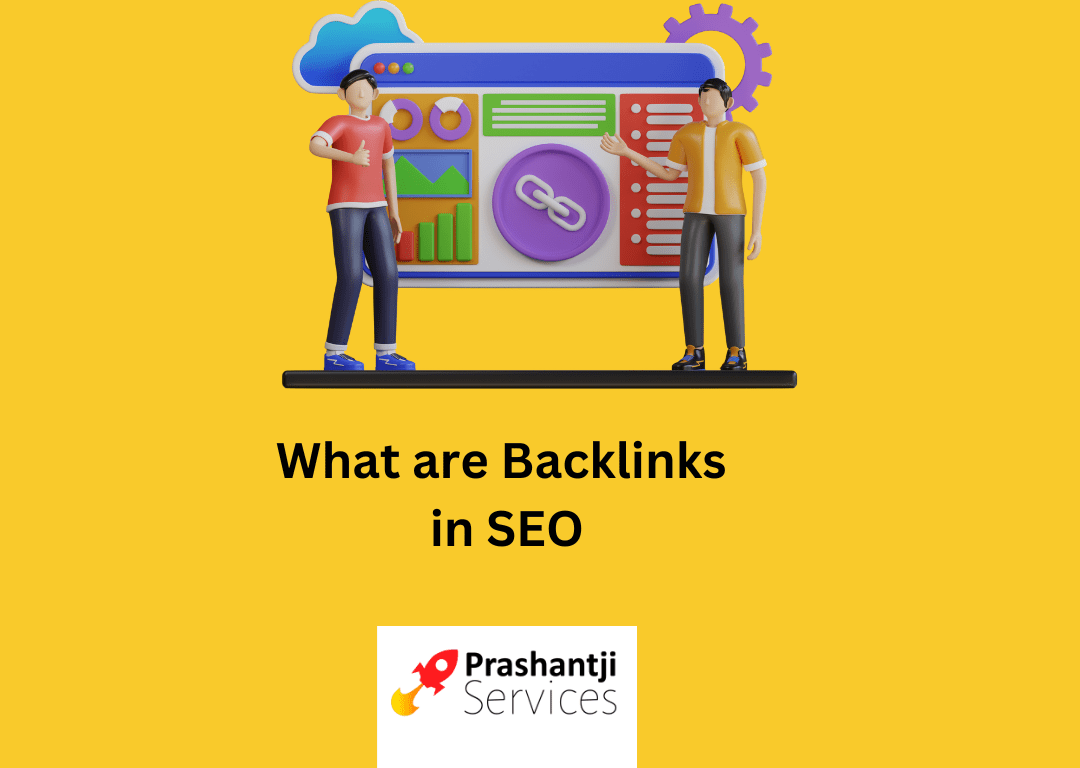Understanding backlinks is crucial for anyone serious about improving their website’s visibility on search engines. If you’re managing a website or working in digital marketing, you’ve likely heard of backlinks and how important they are for SEO. But what are backlinks in SEO, and why do they hold so much weight in determining your site’s ranking on search engines like Google? In this comprehensive guide, we’ll delve deep into the concept of backlinks, their significance, and effective strategies to harness their power for your website.
What are Backlinks?
Backlinks, also known as website links, are essentially pathways that connect one website to another. When a reputable site links to your website, it’s akin to receiving a recommendation. These links are crucial because search engines like Google interpret them as indicators of your site’s authority and relevance. When a website links to yours, it acts as a vote, signaling to search engines that your content is valuable, trustworthy, and worthy of being shared. These votes play a significant role in the complex algorithms that search engines use to rank websites in search results.
Why Backlinks Matter in SEO
Search engines, particularly Google, prioritize backlink SEO as one of the top factors when ranking websites. The number and quality of backlinks pointing to your site can significantly influence your search engine rankings. High-quality backlinking websites act as a strong endorsement for your content, making it more likely for search engines to view your site as an authoritative source.
Understanding the Importance of Backlinks

1. Enhancing Search Engine Rankings
Search engines use backlinks to determine a website’s reliability and authority. High-quality backlinks from authoritative sites signal to search engines that your content is trustworthy, thereby improving your chances of ranking higher in search results.
2. Driving Referral Traffic
Backlinks are not just about SEO; they also drive direct referral traffic to your website. When users click on a link from a trusted site, they’re more likely to visit your site, increasing your chances of engagement and conversions. This referral traffic is often highly targeted, as it comes from users who are already interested in the content or services you offer.
3. Building Relationships and Networking
Engaging in backlink strategy often involves outreach to other websites and influencers in your niche. This process helps in building valuable relationships and networking opportunities, which can lead to further collaborations, guest posting opportunities, and more backlinks in the future.
Types of Backlinks
Not all backlinks are created equal. The quality, relevance, and source of a backlink can greatly affect its impact on your SEO. Here’s a breakdown:
- Natural Backlinks: These are the best type of backlinks. They occur when other sites find your content valuable and link to it without any prompting from you. This is the gold standard of backlinks because it’s an organic endorsement of your content.
- Manual Backlinks: These are earned through deliberate efforts like guest blogging, where you contribute content to another site in exchange for a link back to yours.
- Self-Created Backlinks: These are created by adding your site’s link to directories, forums, or comment sections. While easier to acquire, they’re often less valuable unless they come from reputable sources.
How to Create Backlinks?
Here are some effective methods to create a backlink and enhance your website’s authority.
1. Create High-Quality Content
The key to gaining backlinks lies in creating high-quality, informative, and compelling content that naturally attracts links from other websites. High-quality content serves as a magnet for backlinks, as it provides real value to your audience and establishes your authority in your niche.
2. Guest Blogging
Guest blogging is the process of writing material for other websites related to your business. In return, you get to include a link back to your site. This not only helps in build backlink but also exposes your brand to a broader audience, driving referral traffic.
3. Outreach Campaigns
Reach out to bloggers, influencers, and website owners in your niche and propose collaborations or content sharing opportunities. Personalized outreach can significantly increase your chances of acquiring high-quality backlinks.
4. Utilize Backlinking Websites
There are numerous backlinking websites and platforms designed to help you build backlink profiles effectively. These platforms often provide tools and resources to find relevant backlink opportunities and manage your backlinking efforts efficiently.
5. Leverage Social Media
Promoting your material on social networking platforms can help it gain visibility. The more your content is shared, the higher the chances of earning natural backlinks from users who find it valuable.
6. Participate in Online Communities
Engage in forums, discussion boards, and online communities related to your industry. By contributing valuable insights and linking to your content where appropriate, you can earn backlinks and establish your authority.
Common Backlink Mistakes to Avoid
Building backlinks isn’t just about quantity; quality matters significantly. Here are some few of the mistakes which you have to avoid:
- Overusing Exact Match Anchor Text: This can appear spammy to search engines and may lead to penalties. Use a variety of anchor texts, including branded and generic ones, to maintain a natural link profile.
- Ignoring Link Quality: A backlink from a low-quality or irrelevant site can do more harm than good. Prioritise obtaining backlinks from websites with a lot of authority and relevance.
- Relying on Black Hat Techniques: Avoid tactics like buying backlinks or using link farms. These can lead to severe penalties from search engines, harming your site’s reputation.
FAQs
Q1: What makes a good backlink?
Ans: A good backlink comes from a high-authority, relevant site with natural anchor text, boosting your site’s credibility.
Q2: How can I get more backlinks?
Ans: Acquire backlinks by creating valuable content, guest blogging, outreach, and promoting your content on social media.
Q3: Are all backlinks equally valuable?
Ans: Backlinks from reputable, relevant sites hold greater value than those from low-quality or unrelated sites.
Q4: Can too many backlinks harm my site?
Ans: Yes, if they’re low-quality or spammy. Prioritize obtaining high-quality backlinks to prevent any risk of penalties.
Q5: How long does it take for backlinks to improve SEO rankings?
Ans: Backlinks may take weeks to months to impact rankings, depending on their quality and your overall SEO strategy.
Conclusion
Backlinks are an essential component of your SEO strategy, serving as strong indicators of your website’s trustworthiness. They significantly contribute to boosting your search engine rankings. Backlinks serve as vital endorsements from other websites, signaling to search engines that your content is valuable and trustworthy. By implementing a strategic approach—focused on relevance, quality, and diversity—you can significantly enhance your SEO efforts. At Prashantji Services, a leading Digital Marketing Agency in Delhi, India, we understand the importance of high-quality backlinks in driving organic traffic and improving search engine rankings. Whether you’re aiming to outrank competitors or establish your brand as an industry leader, investing in a solid backlink strategy is a crucial step toward achieving long-term online success.








